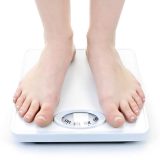

The human population of the earth is estimated to be somewhere just north of 7 billion. If, using round numbers, you multiply that number by about 14,000, you will arrive at the population of organisms living inside the rich ecosystem that is your gastrointestinal tract. Put your calculators away; the number of residents inhabiting your gut is approximately 100 trillion. These denizens of your digestive tract are bacteria, a marvelously diverse internal universe of microorganisms that play an integral role in and are part of your digestive system. This consortium of bugs assist in the breakdown and absorption of the foods you eat and, in this and other ways, they contribute to your overall health and well-being.
In fact, the internal environment of your gut is, dare I say, elegantly designed to play an important role in governing your body’s metabolic processes. It relies on a delicate balance of these microorganisms (GI flora) in order to maintain healthy digestion, absorption and immune function and, when this balance is disrupted, overgrowth of the wrong types of bacteria can lead to numerous health problems – one of which is obesity.
How Does This Happen?
There are many things that can influence floral balance in the gut, the two most common being poor diet and medications, primarily antibiotics. Antibiotics, by design, kill bacteria. This is why they were originally labeled “miracle drugs” – because they cured people from diseases that were previously deadly, such as pneumonia.
Unfortunately, antibiotics do not kill selectively. They kill everything in their path that is sensitive to them, and that includes many of the helpful bacteria found in the gut. Once this imbalance occurs, it can allow the overgrowth of harmful bacteria, which can lead to new problems, some serious and deadly, and others, such as obesity that can have long-term negative health effects. A similar but more gradual disruption occurs with prolonged poor dietary habits. The long and short of it is, that when your bugs are out of balance, you are gaining weight.
Gunfight at the GI Corral
Of the many types of microorganisms in the GI tract, two specific families of bacteria have been associated with obesity. The good guys, bacteroidetes, are like Wyatt Earp and his brothers. They keep the town happy and running smoothly. Firmicutes, (Ike Clanton and his boys) on the other hand, don’t like the way things are being run it this town. They want it all for themselves. As long as the good guys are more prevalent than the bad guys they can keep them in check by what is known as “competitive inhibition.” But, let’s say that the Clantons come to town to stir up trouble and in the midst of the gunfight that everyone knows the Wyatt and Doc Holiday will win, the U.S. Cavalry (Amoxicillin) rides in and mows everyone down not knowing who’s who. After killing everyone, then they ride on out of town. Now that the sheriff is gone there are plenty of bad guys around to come in and take over. Pretty soon Dodge City is a ruined town, unfit for habitation by decent human beings – John Ford’s worst nightmare. This is what happens in your gut when imbalance occurs. Overgrowth of firmicutes creates an imbalance that suppresses the growth of new bacteroidetes, which results in rapid weight-gain.
Here’s how:
Researchers have discovered that obese people have many more firmicutes and less bacteroidetes than lean people. And lean people have more bacteroidetes than firmicutes. And when, in one study, firmicutes were transplanted from obese mice into lean mice the lean mice gained weight very quickly. Scientists believe that these firmicutes are more efficient than bacteroidetes at extracting calories from food and depositing those calories into fat cells. In other words, some parts of the food we eat are not made to be broken down and absorbed and, when it is, more weight-gain results. So if this internal imbalance exists, an obese person can eat exactly the same meal as a lean person and absorb more calories from it than the lean person. That’s a tough hand to be dealt when you are depriving yourself only to learn that your system is working against you and you are still losing ground. But there’s a solution to this problem!
Call for Reinforcements
Two of the most plentiful strains of bacteria in the GI tract are Lactobacillus and Bifidobacterium. These probiotic flora are found in many naturally fermented foods such as yogurt and kefir. Including these foods in your regular dietary lifestyle can go a long way toward maintaining balance in your digestive system. You can ramp up this probiotic effect by using a well-designed supplement containing 5 billion or so of the aforementioned friendly bacteria. As long as you maintain a plentiful population of the good guys, the bad guys can’t hurt you.
In fact, there is a whole array of wonderful health effects that can be derived by adding probiotic foods and supplements into your daily plan. Here are a few things they do to enhance your well-being:
- Lower colon pH – kills disease-causing microbes
- Produce vitamins – A, B and K
- Enhance your immune system
- Prevent deadly post-surgical infections like C.diff.
- Cancer protection
- Prevent or treat yeast infections and UTIs
- Relieve Irritable Bowel Syndrome and Inflammatory Bowel diseases
- All this and more
Take the Easy Way Out
There are few things I can do when counseling a client on weight-loss that make them happy, but telling them to eat some yogurt each day often does just that. It tastes good, satisfies hunger and helps beat back the fat-producing bacteria. And adding a probiotic supplement is really easy to do and brings big benefits. So do these things, lose weight and get better.





bitch